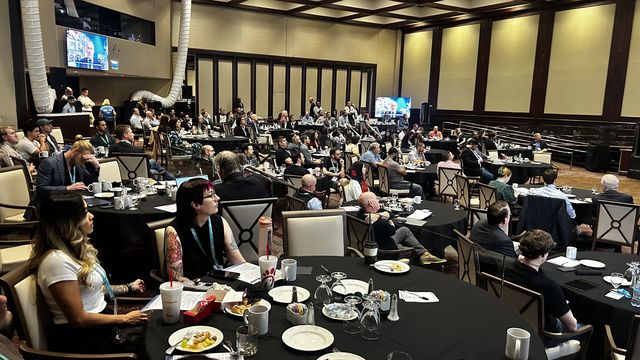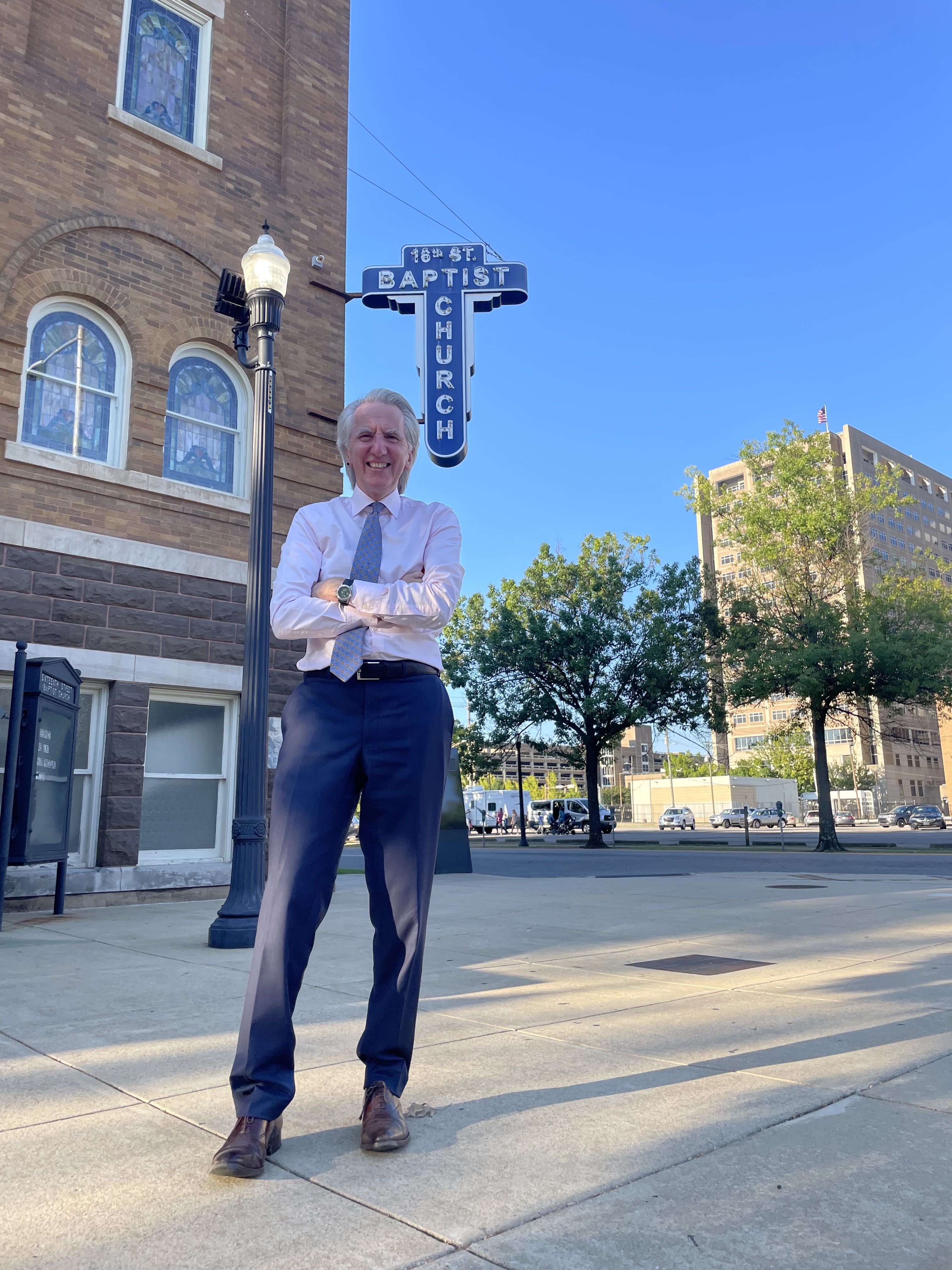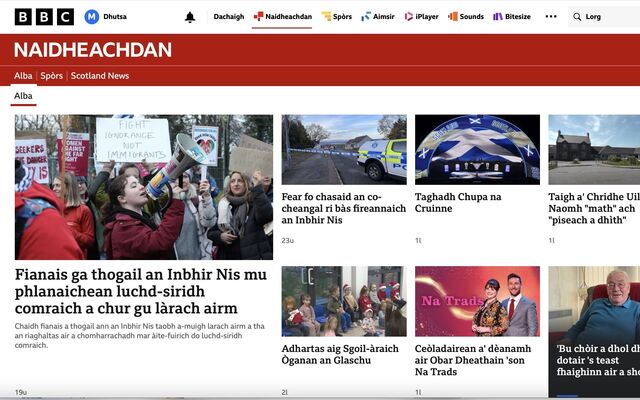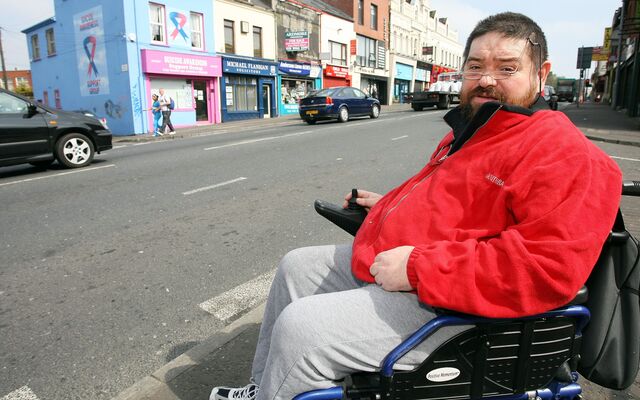In Birmingham, Alabama last week for the inaugural Irish Roundtable in the Magic City hosted by Aisling Events, I thought back 16 years to the initial New York-New Belfast annual conference. At that time, Belfast's links to the powerful American diaspora were in the doldrums.
The worthy Friends of Belfast initiative had petered out amid poorly-attended events and general indifference to a message which was all about past glories - think Titanic, defibrillator and pneumatic tyre - rather than the promise of the future.
There was no great insight required to kick-start the largest transatlantic exchange between any city in Ireland and the Big Apple - after all, the Irish of New York are both the wealthiest and best-informed of all the Irish American communities.
Ditto the powerful partnership with Boston — the annual Golden Bridges celebration lalaunched in 2008 — which in turn midwifed the Belfast-Boston Sister City agreement.
Did we audience test, consult with communities, commission a business case before initiating these transatlantic alliances? That's 'no' thrice because the hard work of clearing this path had already been done by the Irish Government by transforming its consulates across the Northern half of the US into economic and diplomatic engines.
FUTURE FOCUS: Attendees at last week's Irish AI Roundtable
The result, the Republic of Ireland enjoys more business investment from the US than the rest of the European Union combined - that includes the European headquarters of all the American internet giants and major manufacturing operations by nine out of ten of the world's largest Pharma companies.
Conversely, last week the Minister of Communities in the Northern Executive hailed 1,000 new call centre jobs in a statement which pointedly didn't mention the average wage of employees who will be handling calls for the Department of Work and Pensions in London. Suffice to say that the DWP dispatches these jobs to the 'regions' based largely on the lowest bidder - that is, how miserly the salaries can be.
Over recent years, the Irish Government, ahead of the curve as always when it comes to Irish America, doubled down on its consulate and economic agency presence in the western and southern States of the US. To the well-known Irish governmental presence in the great Northern cities, it added consulates in Los Angeles, California, Austin, Texas and Miami, Florida (Atlanta had been opened in 2011).
In the same period, the Executive, crippled by straitened budgets and periods of political vacuum, has been unable to widen its US mission beyond its single office in Washington D.C.
READING RUNES: The author outside 16th Street Baptist Church in Birmingham where four girls died in a 1963 bomb attack by the KKK
Not so Dublin which measures the return on its expanding network of consulates not in poor monetary terms but in jobs created and partnerships forged. In the Republic, US companies now employ over 250,000 employees - the vast majority well-paid.
The trend continues: Open AI, which last week reached a valuation of £120bn, decided last year locate its European base in Dublin. A sign that our Southern neighbours are set to make hay in the coming AI revolution courtesy of their fertile US connections.
If you prefer to look at the diplomatic return, witness how America leaned on the British when the Brexit going got tough.
Since Covid, two million Americans have moved from North to South in the US - a significant number of them entrepreneurs and business leaders. Six Southern States in the US generate a greater GDP than the 13 Northeastern States. Our Department of Foreign Affairs friends in St Stephen's Green read the runes and acted accordingly.
It was in response to the American economic shift south that we found our bridge building efforts from Belfast bringing us to Birmingham, Alabama, capital of the Black Civil Rights Movement, epicentre of Scots-Irish emigration and home to the most exciting tech community in the Southeast of the USA. Don't take my word for it: Ask Giancarlo DiVece, CEO of $100m global company Unosquare who has just acquired a 100-strong software company in the city - to join the company's global family which includes an 80-strong Belfast outpost.
In the Magic City — so named for the rapid, even miraculous, growth of its steel industry in the early 20th Century — Aisling Events was hosting the first-ever event linking two great cites, Belfast and Birmingham, already bonded by their common civil rights struggles. It was no surprise to me that we were received with open arms by a city which already boasts a strong tech eco-system, including the TechBirmingham Network, the annual SLOSS Tech conference and the Birmingham AI coalition - all on top of the powerhouse which is the University of Alabama at Birmingham (with a research budget three times that of UU and QUB combined).
In a video address to the Birmingham Roundtable, Economy Minister Conor Murphy made it clear he's well aware that the times they are a'changing by saluting tech advances in the Southern States while referencing, at home, his recent £16m investment in the new AI Collaboration Centre.
The challenge now for the Executive will be to find a way, within its anaemic budgets, to set out its own stall in the Southern States.
And why, dear reader, does that matter to you? Well, because it means the difference between you, or your children and grandchildren, working in the industries of tomorrow instead of being trapped in low-paying call centre jobs where staff will, sooner rather than later, be replaced by Open AI's bots.







